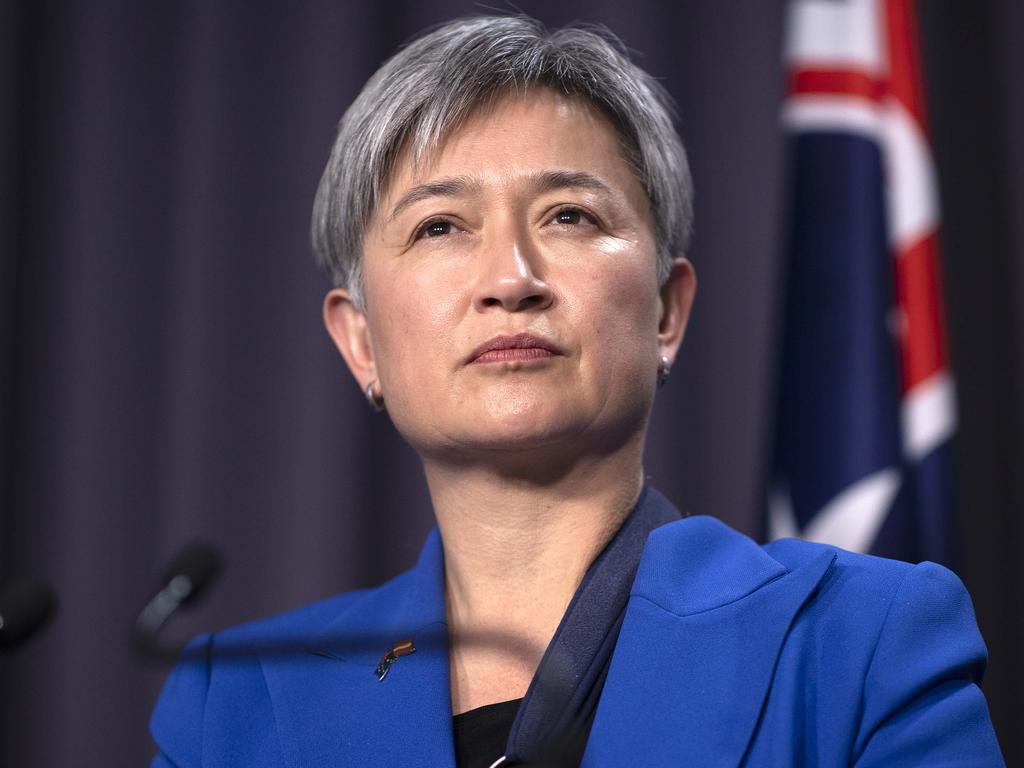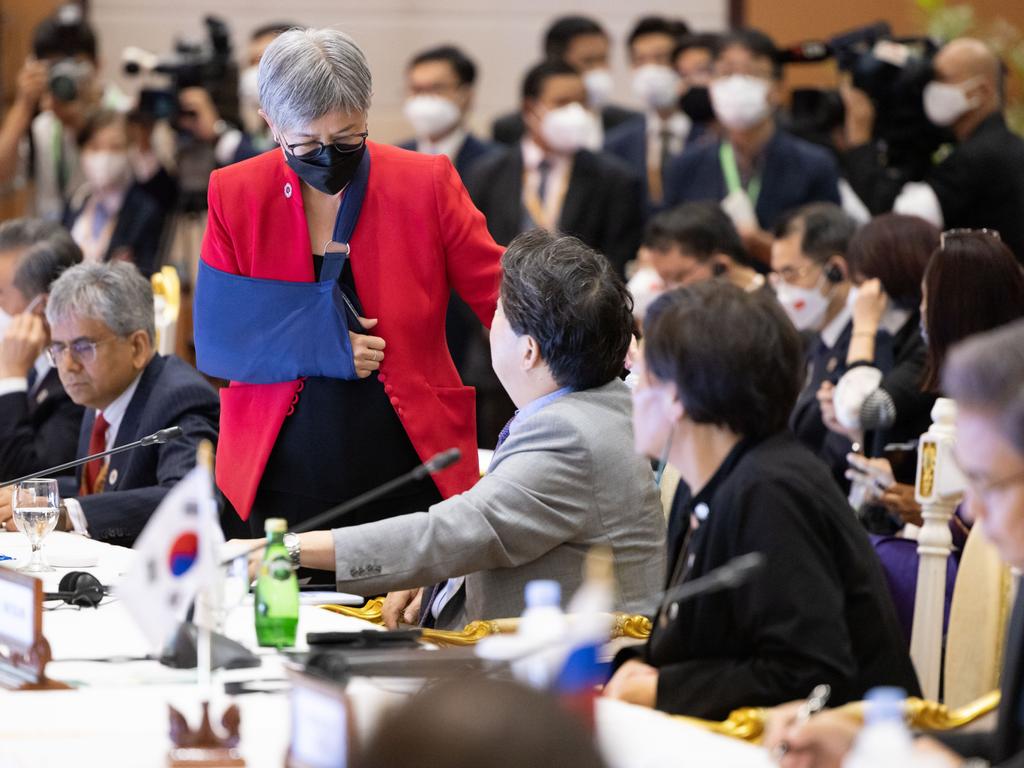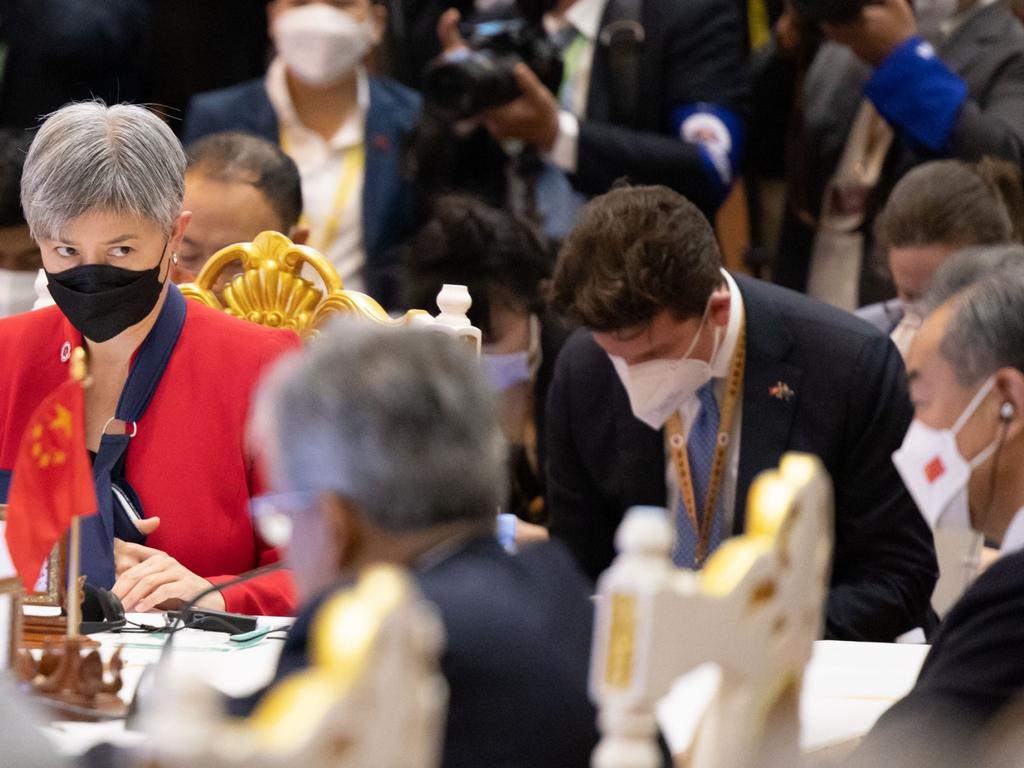Wong tells DFAT to rewrite the diplomatic playbook
A re-empowered DFAT joins intelligence experts at the top table. But the Foreign Minister will be unforgiving if it fails to meet the challenge.

Australia’s foreign affairs bureaucrats crowded into the atrium of Canberra’s RG Casey building on an early August morning to hear from their new minister, Penny Wong. There was a palpable sense of excitement.
Wong noted the Department of Foreign Affairs and Trade’s “intellectual horsepower”, and the “sad fact” that as the world had become more complex, its role had been diminished.
Things would be different under Labor, she said. “I am asking you to help me bring DFAT back to the centre of the Australian government,” Wong declared, to unrestrained applause.
After years of being sidelined under a weak minister and a prime minister who preferred the advice of the nation’s top spooks, DFAT would once again have a seat at the top table.
The re-empowerment of Australia’s foreign service is key to Labor’s vision for advancing the nation’s interests in a more contested world. But it is also working productively with the nation’s intelligence community, the head of which it once branded a “partisan operative”.
There will be greater policy contestability than under the Coalition, but credibility must be earned, government insiders say.
Wong, together with Anthony Albanese and Defence Minister Richard Marles, have declared an end to “megaphone diplomacy”, vowing not to needlessly inflame tensions with China. But they are also strategic realists and acutely aware of the threat Beijing poses to Australia’s interests and the global rules based order.
Recalibrating the nation’s China policy without compromise is a top priority and a potential source of internal conflict – as it previously has been – between DFAT and the nation’s intelligence agencies.

Labor cried foul in 2020 when Andrew Shearer, an adviser to three Liberal prime ministers, was appointed as director-general of the Office of National Intelligence.
“He is not an appropriate choice and (Scott) Morrison should reconsider (the appointment) in the national interest,” the party said at the time in a statement issued by Wong’s office.
Yet Shearer was retained by Labor after its election win.
“The moment you make contact with the reality of the government a lot of that partisan stuff falls away,” a senior government source said. “The seriousness of what is before you means you can’t faff about. You’ve got to make big calls.”
As The Australian’s Simon Benson and Geoff Chambers write in their new book, Plagued, Shearer is a strategic hawk who co-authored the nation’s China policy – developed in isolation from DFAT – aimed at countering Beijing’s foreign interference and economic coercion.
“When it came to national security, Shearer’s experience and political judgment helped to stiffen the resolve of any hand-wringers in the ministry,” they write.
Such commentary will reinforce the wariness of some within the government of the top spy with the solid neo-con CV.
But Albanese and his most senior ministers have set aside the fact that the ONI boss worked for John Howard, Tony Abbott and Scott Morrison, choosing instead to draw on his deep knowledge and experience.
Wong, in particular, seeks out his advice and is known to have grilled the top spy on the big strategic threats facing Australia. Barring unforeseen events, Shearer is likely to serve out the remaining three years of his five-year statutory term. A national security colleague of Shearer said he was “made for the times”, which required “a massive uplift” in intelligence capabilities and a sharpening of strategic priorities.

“Whatever partisan critiques were levelled at him before, there is no more credible voice on shaping Australia’s strategic environment,” the source said. “Wong and Albo are serious about national security and therefore they have ensured he remains the point person in dealing with the most pressing strategic threats facing this country.”
Morrison made plain his disregard for DFAT when he installed former Human Services boss Kathryn Campbell as secretary, replacing career diplomat Frances Adamson. Adamson, who is now governor of South Australia, was respected within the department but regarded by the government as being too late to recognise the need for a tougher approach to dealing with China.
Campbell’s appointment suggested an attempt to impose service-delivery discipline on a department Morrison saw as elitist and vacillating.
Wong was never a Campbell fan, asking her during a Senate estimates hearing to explain “the role of both foreign policy and diplomacy” in advancing Australia’s interests. Ultimately, Campbell was punted after the election, along with Department of Prime Minister and Cabinet secretary Phil Gaetjens, who was previously Morrison’s chief of staff.
In her place, Labor appointed Jan Adams – a career diplomat, economist, former ambassador to China and Japan and, importantly, a Wong confidant. Adams met Wong and gained her respect during the Rudd government when Adams was ambassador for climate change and Wong the climate change minister.

A new band of senior foreign policy and national security advisers, who happen to all be women, also has been installed in the Prime Minister’s and Foreign Minister’s offices.
Albanese’s national security adviser, Philippa Brant, is a Mandarin-speaking former Wong staffer and ONI officer with a PhD on Chinese foreign aid. The Prime Minister also has a dedicated foreign policy adviser, Kathy Klugman – an ex-high commissioner to Sri Lanka and former head of DFAT’s Pacific division who is also the daughter of former Labor MP Dick Klugman.
Wong has prioritised intelligence backgrounds in her key staffing hires, appointing former ONI officer and one-time deputy ambassador to Iran Anna Oldmeadow as her deputy chief of staff and former ONI officer Ashlee Brady as her Pacific adviser. She also has hired a former diplomat in China and Solomon Islands, Natasha Kassam, who is a Mandarin-speaker and a former Lowy Institute foreign policy program director.
Like Shearer, Labor has opted not to overturn the appointment of Australian Strategic Policy Institute executive director Justin Bassi, who was former foreign minister Marise Payne’s chief of staff and national security adviser to Malcolm Turnbull.

The semi-official position is peripheral to government but influential in shaping the national security debate. Despite grumblings on the left and claims of a flawed selection process, Bassi has the support of Marles to continue in the role.
The nation’s three main intelligence service chiefs under Shearer are all respected career public servants. ASIO director-general Mike Burgess and Australian Signals Directorate director-general Rachel Noble still have several years to run in their terms. But Albanese and Wong will soon have to select a new head of the Australian Secret Intelligence Service, to replace director-general Paul Symon, whose term ends in December.
Given the pace and complexity of world events, and the consequences of strategic missteps, Labor is putting a premium on quality advice. DFAT in particular needs to prove it is up to the job. Its officers were once regarded as the equal of the Treasury or Prime Minister and Cabinet in their professionalism and talent.
But the department drifted under Payne, who failed to inspire on the international stage and, despite being the most senior woman in the Morrison government, was unable to prevent job cuts at diplomatic posts or lift the static aid budget. Good people left the department. Morale suffered and its officers became risk averse.
Wong urged her officials to be bold and creative once more, and to rewrite the diplomatic playbook for the times.
“I want DFAT to be the first adviser on Australia’s engagement in the world,” she said. “That means lifting. Lifting your ambition. Lifting the quality of advice. Lifting capacity for co-ordination – internally and across government.” She also warned, more pointedly: “We are not here to simply occupy the space. We are not here to admire the complexity of the problems we face. We are not here to mollify. We are here to advocate.”
Wong is determined to reinvigorate her department and will be unforgiving if it fails to meet the challenge.








To join the conversation, please log in. Don't have an account? Register
Join the conversation, you are commenting as Logout